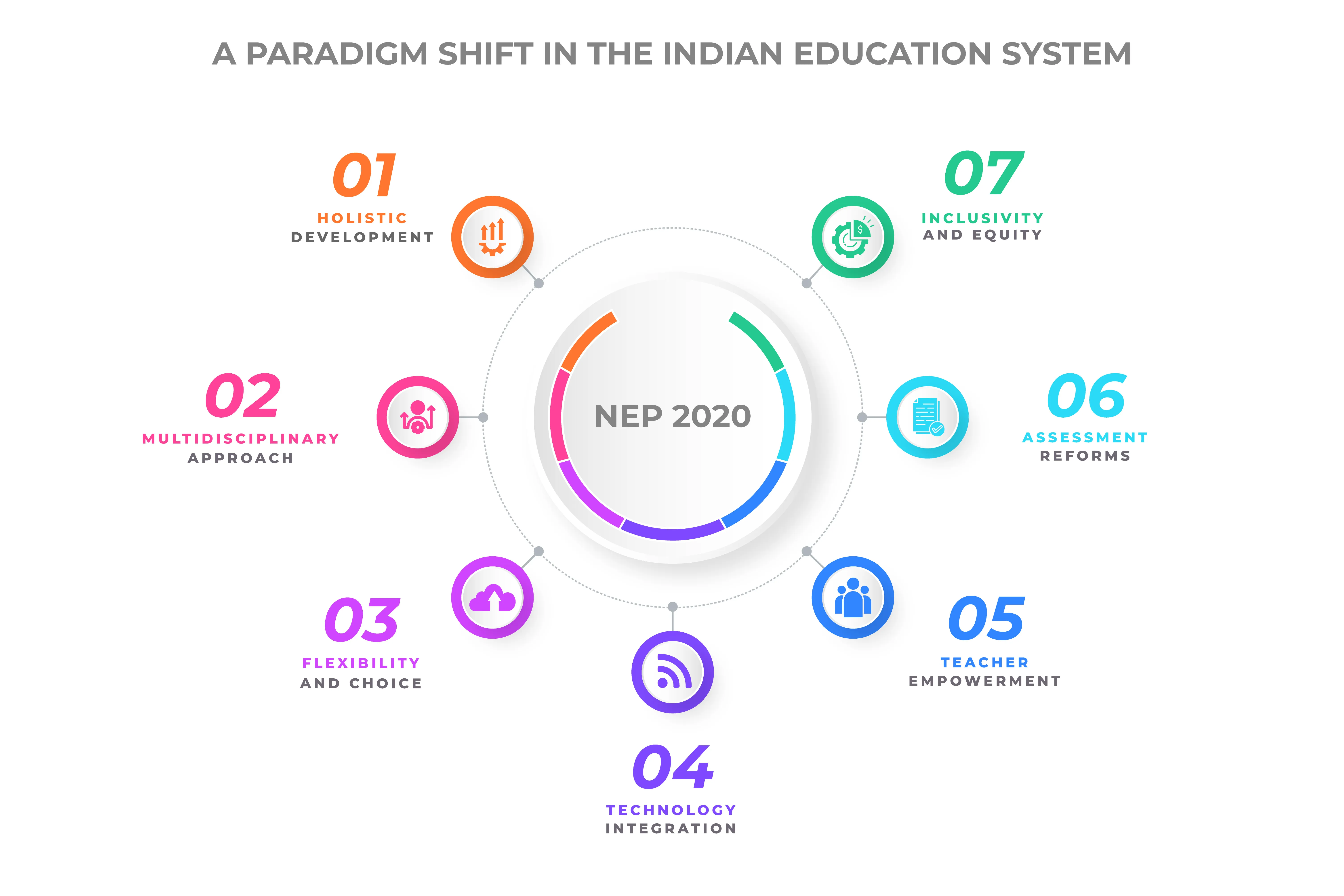
Introduction:
The National Education Policy 2020 (NEP 2020) marks a significant paradigm shift in the Indian education system. With its visionary approach and comprehensive reforms, NEP 2020 aims to transform education in India, aligning it with the needs of the 21st century. In this blog, we will explore the key highlights of NEP 2020 and how it brings about a transformative change in the Indian education landscape.

Holistic Development:
NEP 2020 emphasizes the holistic development of students, focusing not only on academic excellence but also on their social, emotional, and physical well-being. The policy recognizes the importance of nurturing their creativity, critical thinking, problem-solving skills, and values.
Multidisciplinary Approach:
NEP 2020 promotes a multidisciplinary approach to education, encouraging students to explore various subjects and domains. It breaks the traditional boundaries between arts, sciences, and vocational studies, allowing students to develop a broader perspective and interdisciplinary knowledge.
Flexibility and Choice:
The policy provides flexibility and choice to students in selecting subjects, courses, and learning pathways. It offers a wide range of electives, vocational courses, and academic options, empowering students to pursue their interests and talents.
NEP 2020 recognizes the significance of technology in education and promotes its integration across all levels. It emphasizes the use of digital resources, e-learning platforms, and online tools to enhance teaching and learning outcomes, making education accessible and engaging.
Teacher Empowerment:
NEP 2020 focuses on empowering teachers by providing them with opportunities for professional development, continuous learning, and innovative pedagogical practices. The policy aims to transform teachers into facilitators and mentors who inspire and guide students in their learning journey.
Assessment Reforms:
NEP 2020 brings about changes in the assessment system, moving away from rote memorization and high-stakes examinations. It emphasizes competency-based assessments that evaluate students' conceptual understanding, critical thinking, problem-solving abilities, and practical skills.
Inclusivity and Equity:
The policy lays a strong emphasis on inclusivity and equity, ensuring access to quality education for all students, including those from marginalized backgrounds and differently-abled learners. It aims to bridge the educational divide and promote social justice.
Conclusion:
NEP 2020 heralds a new era in the Indian education system, focusing on holistic development, multidisciplinary learning, flexibility, technology integration, teacher empowerment, and assessment reforms. It paves the way for a student-centered, inclusive, and future-ready education system. By embracing the transformative changes brought about by NEP 2020, India is poised to nurture a generation of learners who are equipped with the necessary skills, knowledge, and competencies to thrive in a rapidly changing world.